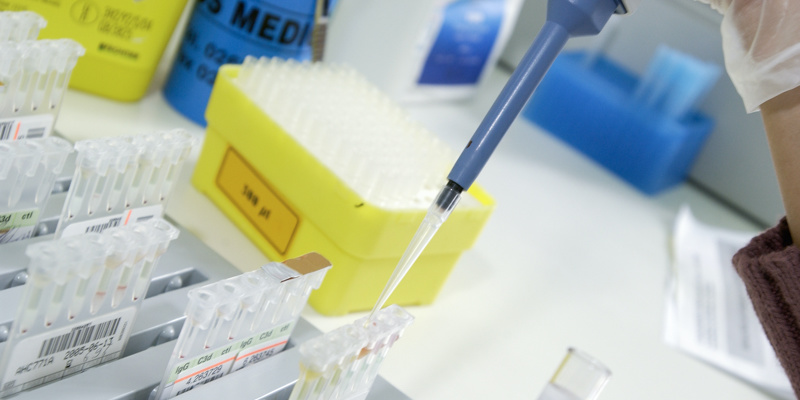Using machine learning to enable screening for autism spectrum disorders from birth and eventually offer these babies the earliest possible care is the project on which a team of doctors and researchers from Limoges (CHU and University), Marseille and Paris have worked. They have just published the results of their AUT ANT study in Scientific Reports.
Autism Spectrum Disorders (ASDs)
Autism Spectrum Disorders (ASDs) are characterized by socialization and communication difficulties, restricted interests and repetitive and stereotyped behaviors. The diagnosis is made between the ages of 3 and 5. An early diagnosis can reduce the severity of the after-effects and better integrate the child into his or her social environment with the help of psycho-educational techniques.Knowing that ASDs appear in utero, the AUT ANT study evaluated the hypothesis that an analysis of maternity parameters could make it possible to evaluate the risk of an ASD prognosis from birth.
The AUT ANT Study
This preliminary study, which lasted 3 years, collected follow-up data from the beginning of pregnancy to birth on 65 children diagnosed with ASD. All data came from the Limoges University Hospital for children born at the mother and child hospital and diagnosed by the Autism Expert Centre (whose activity was taken over by the Autism Resource Centre Limousin in 2019).A total of 120 parameters per pregnancy (parents' family history, obstetrical ultrasounds, HT21 test, delivery conditions, first days of life, etc.) were analysed using a "machine learning" type program developed by the research team. This is an artificial intelligence technology that allows computers to perform predictive analyses based on data. This data was compared to that of 240 births in the same maternity hospital, which did not have this ASD diagnosis.
The program made it possible to analyze all the data without any preconceived notions and to determine the impact of each parameter on the final prognosis. The team of researchers demonstrated that it is possible to identify, thanks to this artificial intelligence program, 95% of babies who will not be diagnosed with ASDs later on and 1 in 3 who will, but with an accuracy of 75%.
This progress is in line with the recommendations of the authorities insisting on the importance of early detection of at-risk babies/children and their management with adapted psycho-educational techniques.
Next step: extending the study to confirm the results
However, this is a prognosis, not a diagnosis, and its reliability needs to be consolidated by estimates on hundreds of babies.This first study is therefore only a step. The team's objective is now to extend it to several French and foreign maternity hospitals on a larger number of newborns. Then, if the first results are confirmed, to make a vast prospective study in order to specify the prognosis and to better determine the parameters which support it.
If these data are confirmed by future studies, this would pave the way for preferential management of at-risk babies and early identification, which is one of the major goals of ASD protection and treatment programs.
The AUT ANT project team
- Gynecology-Obstetrics Department, Mère-Enfant Hospital, University Hospital Center, Limoges, France : Hugues Caly, Perrine Coste-Mazeau, Jean-Luc Eyraud & Catherine Caly
- BABiomedical, Luminy Scientific Campus, Marseille, France : Hamed Rabiei & Yehezkel Ben-Ari
- Neurochlore, Luminy Scientific Campus, Marseille, France : Hamed Rabiei & Yehezkel Ben-Ari
- Bacteriology-Virology-Hygiene Department, University Hospital Center, Limoges, France: Sebastien Hantz & Sophie Alain
- French National Reference Center for Herpes Viruses, University Hospital Center, Limoges, France : Sebastien Hantz & Sophie Alain
- Department of Biochemistry and Molecular Genetics, Dupuytren University Hospital, Limoges, France : Thierry Chianea
- INRAE, UMR MIA 518, INRA AgroParisTech Université Paris-Saclay, Paris, France: David Makowski
- Martinos Center for Biomedical Imaging, Harvard Medical School, Boston, USA: Nouchine Hadjikhani
- Gillberg Neuropsychiatry Center, Sahlgrenska Academy, Gothenburg University, Gothenburg, Sweden: Nouchine Hadjikhani
- Autism Expert Center and Autism Resource Center of Limousin, University Hospital Center, Limoges, France : Eric Lemonnier
Translated from Dépiste l’autisme avec l’intelligence artificielle : l’étude AUT ANT de médecins et chercheurs de Limoges, Marseille et Paris


